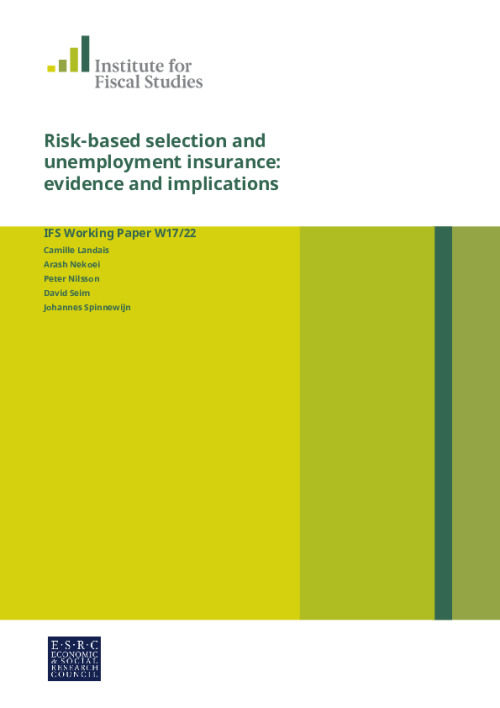This paper studies whether adverse selection can rationalize a universal mandate for unemployment insurance (UI). Building on a unique feature of the unemployment policy in Sweden, where workers can opt for supplemental UI coverage above a minimum mandate, we provide the fi rst direct evidence for adverse selection in UI and derive its implications for UI design. We fi nd that the unemployment risk is more than twice as high for workers who buy supplemental coverage, even when controlling for a rich set of observables. Exploiting variation in risk and prices to control for moral hazard, we show how this correlation is driven by substantial risk-based selection. Despite the severe adverse selection, we find that mandating the supplemental coverage is dominated by a design leaving the choice to workers. In this design, a large subsidy for supplemental coverage is optimal and complementary to the use of a minimum mandate. Our fi ndings raise questions about the desirability of the universal mandate of generous UI in other countries, which has not been tested before.











